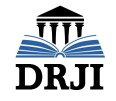Sesmarias - uma dádiva do rei
DOI:
https://doi.org/10.5433/1679-0383.1988v9n1p13Keywords:
Allotment, Agrarian policy, Agrarian reformation, Large landed estates, Social nature of properties, Political Allotment system, Regional peculiarities.Abstract
In this dissertation I make a detailed study of the Brazilian agrarian issue in light of previous legislation i.e. the Sesmarias (Allotment) Law, as compared with our present agrarian reformation. The study reveals that the Sesmarias Law (redistribution of land to those who wanted to engage in agriculture) which was passed in Portugal in order to overcome the food shortage that resulted from the abandonment of agriculture in Brazil, was enforced inadequately. This law did not take the peculiarities of Brazil into account. In addition, the law was inappropriately applied when it was eventually used as a guarantee of conquered lands. The grant of Sesmarias was put into practice without adequate criteria since the Monarch used it to favor his political allies. Consequently, frequently allotters were not the people who actually occupied the land. Another problem was in the different interpretations of the measure "league" and was eventually responsible for the emergence of many unproductive large landed estates. The agrarian reformation has not been put in to practice, as it is dependent on an effective agrarian policy which will solve the problem of unproductive large landed estates in some regions and which will bring about a satisfactory settlement of the land in others. Such a policy will have to consider the geographical and human peculiarities of each regions so as to best comply with the social nature of properties.
Downloads
Downloads
Published
How to Cite
Issue
Section
License
Semina: Ciências Sociais e Humanas adopts the CC-BY-NC license for its publications, the copyright being held by the author, in cases of republication we recommend that authors indicate first publication in this journal.
This license allows you to copy and redistribute the material in any medium or format, remix, transform and develop the material, as long as it is not for commercial purposes. And due credit must be given to the creator.
The opinions expressed by the authors of the articles are their sole responsibility.
The magazine reserves the right to make normative, orthographic and grammatical changes to the originals in order to maintain the cultured standard of the language and the credibility of the vehicle. However, it will respect the writing style of the authors. Changes, corrections or suggestions of a conceptual nature will be sent to the authors when necessary.

















